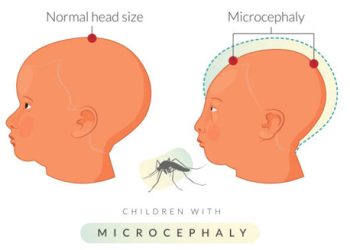Diagnosis of impetigo is primarily clinical, meaning that healthcare professionals usually identify the condition based on its appearance and typical presentation without the need for extensive laboratory testing.
Doctors often spot impetigo by looking at the skin. The red sores, yellow crusts, or blisters make the condition easy to recognise—especially in children or people in places where impetigo spreads easily. The fast-moving nature of the infection also helps tell it apart from other skin conditions.
What Doctors Look For
In most cases, a simple physical exam is enough. Doctors check for common signs like crusted sores on the face, arms, or legs. Non-bullous impetigo usually forms golden-yellow scabs, while bullous impetigo shows fragile blisters that burst and leave red skin behind.
Doctors may also ask about any recent cuts, insect bites, or contact with someone else who has similar symptoms. These questions help confirm the source and spread.
The outlook for impetigo improves with fast and accurate diagnosis, especially before the infection spreads.
When Lab Tests Are Needed
Sometimes, doctors need more than just a look. If the infection is severe, doesn’t clear up, or keeps coming back, they may take a skin swab. This sample goes to a lab to check which bacteria are causing the problem. Most often, the culprits are Staphylococcus aureus, Streptococcus pyogenes, or both. The test can also show which antibiotics will work best.
Doctors also test for MRSA (methicillin-resistant Staph) if they suspect the usual antibiotics won’t help. MRSA doesn’t respond to common drugs like penicillin. People who have had MRSA before, or who live in areas where it’s common, might need this test early on. Spotting MRSA quickly helps doctors choose stronger treatments and prevent bigger problems.
Ruling Out Similar Conditions
Impetigo isn’t the only skin problem with blisters or sores. Other conditions, like herpes simplex, tinea (ringworm), scabies, or allergic rashes, can look similar. Doctors use patient history, symptoms, and how fast the sores appeared to tell the difference. Sometimes, what seems like impetigo might actually be another illness that needs different care.
In people with eczema or psoriasis, the signs of impetigo can blend in or look different. In those cases, doctors rely more on lab tests and careful tracking. If the sores are deep or not healing, they may do a small biopsy to rule out other causes or confirm a deeper skin infection.
Special Focus: Children and Group Settings
In children, the diagnosis of impetigo is usually quick and easy. Doctors often confirm it during a routine visit. Parents should look out for red, itchy patches or yellow crusts—often the first signs. Acting early helps stop it from spreading and makes treatment more effective.
The outlook for impetigo in children improves a lot when schools and parents respond quickly. Early care shortens the illness and prevents larger outbreaks.
What Happens After Diagnosis
Once doctors confirm impetigo, they usually start treatment right away—without waiting for lab results unless the case is complicated. They choose a treatment based on the usual bacteria and their experience. Most mild cases get creams like mupirocin or fusidic acid. For larger or more serious infections, patients take oral antibiotics like flucloxacillin or cephalexin.
Even though impetigo doesn’t have to be reported in most countries, outbreaks in places like schools or care homes may require public health notification. Quick action, isolation of infected people, and good hygiene stop the spread fast.
Improving the Outlook for Impetigo
In summary, doctors mainly rely on clinical signs to diagnose impetigo. Lab tests are only used when needed. Quick and accurate diagnosis leads to faster treatment, fewer problems, and better results. Thanks to its clear symptoms, impetigo is one of the easier skin infections to spot. Still, doctors must stay alert—especially in tough or unusual cases.
With fast care and proper management, the outlook for impetigo stays excellent for most people. Early steps make a big difference, especially in stopping outbreaks and helping people heal quickly.
[Next: Treatment of Impetigo →]


